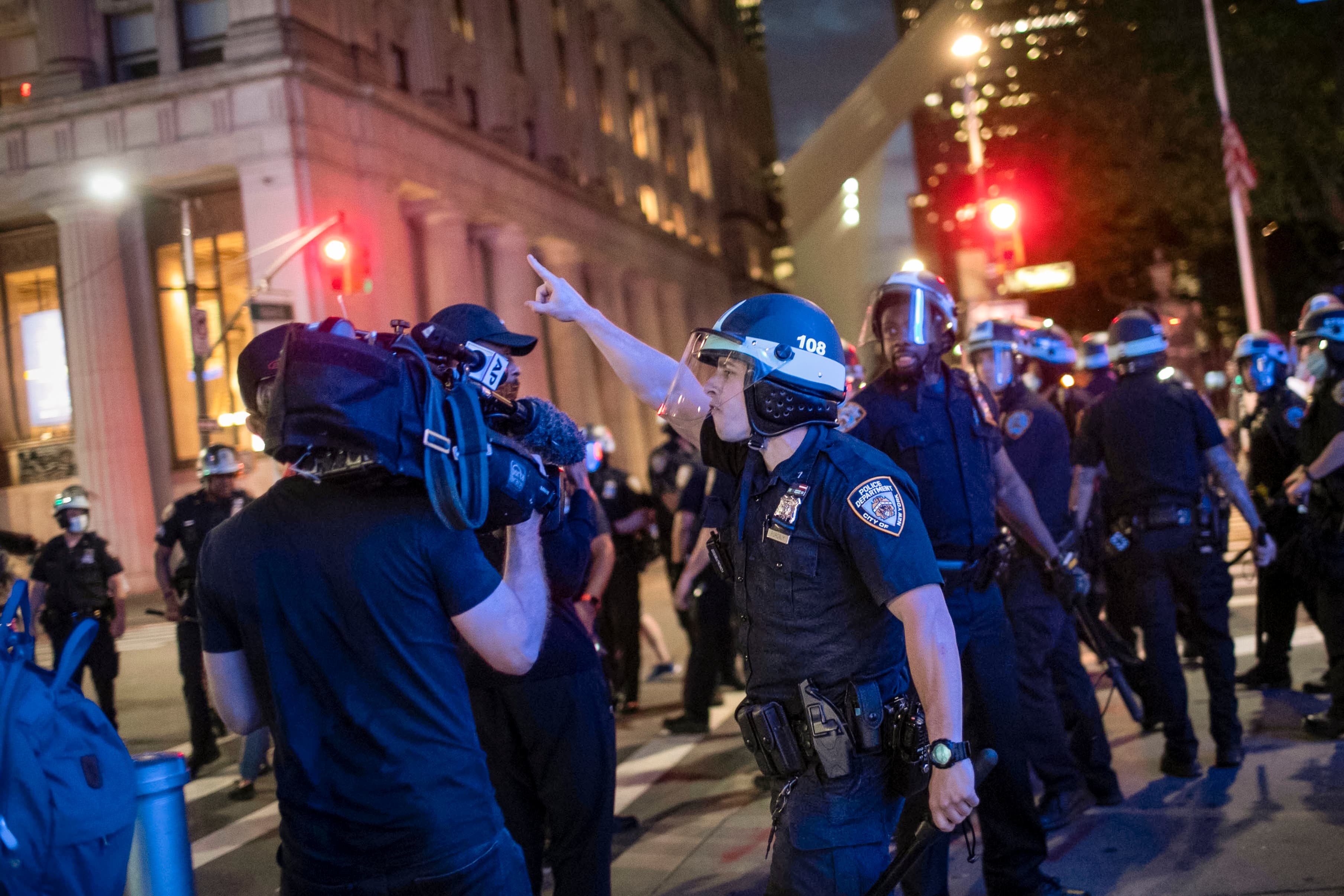New DOJ recommendations for police and press bridge protest divide

On Friday, the U.S. Department of Justice and the Police Executive Research Forum released a first-of-its kind set of best practices for police-press interactions at mass demonstrations. The report is the result of a convening of police leaders and journalists, spearheaded by the Reporters Committee for Freedom of the Press and PERF, and supported with a grant from the Justice Department’s Office of Community Oriented Policing Services.
The report, “Police-Media Interactions During Mass Demonstrations: Practical, Actionable Recommendations,” proposes that police establish clear policies for before, during, and after a protest event. Chief among the recommendations is that police agencies adopt express “arrest avoidance” procedures that direct officers to let detained journalists go quickly, and that journalists be explicitly exempted from dispersal orders and curfew enforcement.
The report also recommends that while credentials are an easy way to identify working members of the news media, police should also recognize those “acting as journalists in function and behavior.”
“With a fraught election next month, we have a unique opportunity with these best practices to both protect journalists at protests and help police serve their public safety mission,” said Bruce D. Brown, executive director of the Reporters Committee for Freedom of the Press. “The challenge now is to get the recommendations in the hands of police departments and newsrooms around the country.”
The Reporters Committee regularly files friend-of-the-court briefs and its attorneys represent journalists and news organizations pro bono in court cases that involve First Amendment freedoms, the newsgathering rights of journalists and access to public information. Stay up-to-date on our work by signing up for our monthly newsletter and following us on Twitter or Instagram.